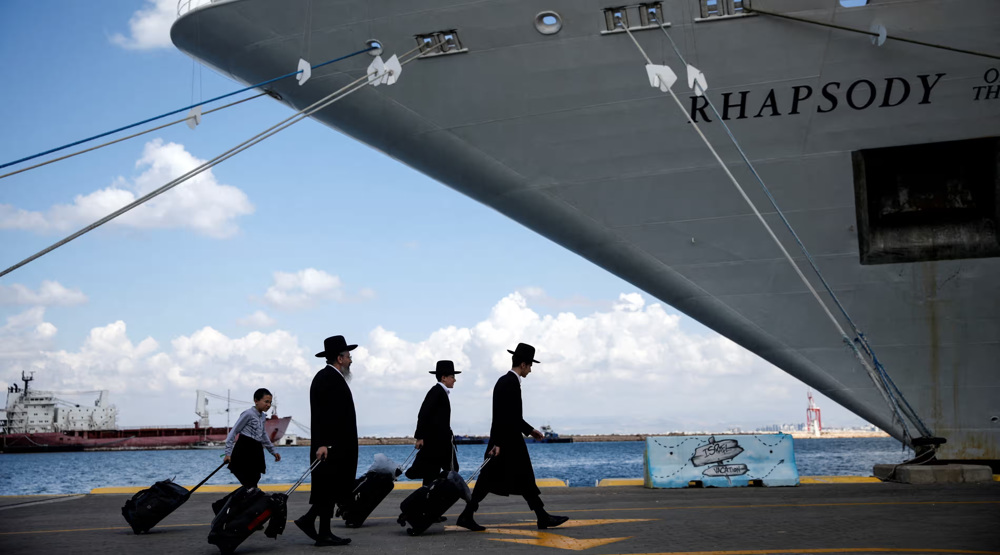Russia stresses need for diplomacy in Persian Gulf dispute
Russian President Vladimir Putin has stressed the need for diplomacy to end the dispute between Qatar and several other Persian Gulf states.
"Vladimir Putin stressed the importance of political-diplomatic efforts aimed at overcoming differences of opinion and the normalization of the difficult situation that exists," said a statement released by the Kremlin on Saturday.
While noting that the conversation was initiated by Qatar and Bahrain, it noted that boosting cooperation in the field of energy and investment was also discussed.
Saudi Arabia, Bahrain, Egypt, and the United Arab Emirates severed diplomatic ties and cut all land, sea, and air contacts with Qatar on June 5. The four countries accused Qatar of supporting terrorism and destabilizing the region, allegations denied by Doha.
The countries later issued a list of demands for Qatar to meet in return for the normalization of ties. Among them was that Qatar should shut down Al Jazeera, a media network that has reportedly been critical especially of Saudi Arabia, close a Turkish military base, limit its ties with Iran, and “compensate” the sanctioning countries.
Read More:
- Qatar lobbying with UNSC members to lift Saudi-led bans
- Turkey sees hope to find solution to Qatar crisis: Official
Qatar: list of demands designed to be rejected
Meanwhile, Qatar’s Foreign Minister Sheikh Mohammed bin Abdulrahman Al Thani has stressed that Doha will not give in to any of the demands made by Riyadh and its allies, noting that the requests were “meant to be rejected."
"Everyone is aware that these demands are meant to infringe the sovereignty of the state of Qatar, shut the freedom of speech and impose auditing and probation mechanism for Qatar," he added.

"We believe that the world is not governed by ultimatums, we believe that the world is governed by the international law, it is governed by an order that does not allow large countries to bully small countries," he noted.
Thani made the remarks with less than 48 hours remaining to the end of the demands' deadlines, stressing that "those parties brand any party of state who opposes their designs as terrorists."
"The United States administration and institutions firmly believe in the state of Qatar, yet the statement made by President [Donald] Trump was based on false allegations and the false impression given to him by the heads of states who imposed blockade on Qatar," he added.
"The state of Qatar has been subjected to unlawful measures on the basis of false allegations without the submission of evidence," he stressed.

Read More:
- Saudi FM calls Qatar demands non-negotiable, Qatar calls them unrealistic
- Qatar denounces Saudi refusal to negotiate demands
- Saudi-led bloc’s demands unreasonable: Qatar
Saudis push on with Qatar demands
On Saturday, Saudi Arabia reiterated that its demands on Doha were "non-negotiable."
Saudi Foreign Minister Adel al-Jubeir tweeted that Riyadh’s "demands on Qatar to stop funding terrorism are non-negotiable."
"Restrictions on Qatar show zero tolerance for terrorism," he said, claiming that Doha had failed to keep previous vows of stopping "funding terrorism and interfering in other countries' affairs."
Jubeir made a similar statement last week, stressing that the demands, which most countries have dubbed as being unrealistic, were non-negotiable. "We made our point, we took our steps and it's up to the Qataris to amend their behavior and once they do, things will be worked out, but if they don't they will remain isolated," he said.
Israel’s aggression inflicts $8.5 billion in economic losses on Lebanon: World Bank
Hezbollah attacks Israeli military bases in Tel Aviv, Haifa
Hezbollah strikes multiple Israeli targets in fresh retaliatory operations
VIDEO | New Zealand: Maori MPs protest in parliament with Haka war dance
Pezeshkian: World has come to believe Iran seeks peace, security
Houthi: US bombs inflame, escalate wars of extermination in West Asia
VIDEO | Press TV's news headlines
UN report says Israel’s methods in Gaza align with ‘genocide’













 This makes it easy to access the Press TV website
This makes it easy to access the Press TV website